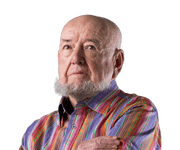Extract from The Guardian
Indigenous voice to parliament
The polls had been favourable until a brutal press campaign kicked in against this kindly, long-overdue change
- Thomas Keneally is the author of the Booker-winning Schindler’s Ark
When the referendum was announced in March this year, it was as a result of a message to mainstream Australia from Indigenous Australia, a statement made at Uluru near Alice Springs by Aboriginal representatives. They suggested constitutional recognition of the Aboriginal race’s ancient discovery and ownership of Australia, and proposed that their community’s disadvantages in modern Australia could be addressed through a group of Aboriginal delegates who would advise on federal laws affecting Aboriginal Australians.
The ownership matter is no longer as controversial as it once was. In the 1970s a Torres Strait Islander named Eddie Mabo was shocked to hear that his garden on Murray Island belonged to the crown. He undertook a long, brave journey from regional courts all the way to the high court, to prove that his tropic garden was not the crown’s, but his own. That decision in 1992 declared that Indigenous Australians had never ceded sovereignty over their land. There were cries that every white-owned house and swimming pool would be imperilled, but the truth was that the decision allowed the Aboriginal people to claim in reality traditional and unalienated, as in not yet purchased under title and built-upon, land. With that decision began the custom of the “welcome to country”: a local tribesman, or at least an Aboriginal Australian, briefly, as a small polite gesture, welcoming people to public events and citing the local tribe and its elders, men and women, past and present. This will continue to be the practice; an acknowledgment of the established fact.
Then, in 1996, the Wik tribe in Queensland took the state all the way to the high court to prove that the granting of pastoral and mineral leases throughout Australia had not extinguished native title in the leases themselves.
And even before these court battles, many knew the truth in their hearts; I think we always have. In 1868, when Charles Dickens’s youngest child, Plorn, was an adolescent station hand, Fred Bonney, son of a Staffordshire parson, often said to him, pointing to the encampment of Barkindji beyond the station yard: “This is really their land, you know.” The remarkable Bonney, a far nobler invader than other station bosses, foresaw the judicial decisions of the 1990s. But so did a number of reflective whites in my own less elevated childhood in a country town. One could not take in the extent of river, forest, mountain and shoreline without being also taken in by the suspicion that they did not belong to us.
Now, with those two decisions, Mabo and Wik, under our belt, the concept of an Indigenous body commenting on legislation that affects Aboriginal people directly, and only upon such legislation, did not seem a great extension to what we already knew. Settlers’ children like myself have been here less than 250 years. Aboriginal Homo sapiens is claimed to have been here for 65,000 years. Whenever I say that, I see a child running up a beach into sand dunes, for the Aboriginal people not only travelled in families but in clans. And in a clan the children sometimes run ahead. A friend of mine, the scientist Jim Bowler, discovered the oldest ritual burial of any human we have yet discovered, Mungo man, a skeleton adorned with ochre and shell 42,000 years ago out on the now dry Willandra Lakes. He lived at a time when our European ancestors were still making their way to Europe from central Asia and having a much tougher time than this man, who lived in the plenty of ice age Lake Mungo.
In any case, an English reader might see the rejection of the voice last Saturday as predictable, full-blown Aussie racism. I have to dispute that interpretation, given that when the referendum was announced in March, polls were favourable to the idea.
But in the months since, news organisations that also, through the recklessness of our politicians at various stages of history, own television stations, spread grotesque stories about what the Aboriginal advisory body would do in practice. The Murdoch press and others raised fantastical propositions about what the powers of the body would be. I met people who were sincerely confused. We always thought that one day prime minister, Anthony Albanese, would sit us down and explain the essence of the voice and the limits of its power in transparent and unarguable English. For whatever reason, this never seemed to happen. His minister for Aboriginal affairs, Linda Burney, of the strong and influential Wiradjuri tribe, bravely did what she could, but says she spent all her time battling the latest Murdoch press fable.
Hence the tears of “yes” voters last weekend. There are so many issues that still need addressing and it cannot happen now in the most efficient way. One is the high proportion of prisoners who are Aboriginal. The rate at which Aboriginal Australians die in custody is obscenely greater than the white and Asian settler community. Indigenous Australians do not live as long as whites, having an average life span that is eight years shorter. We would have had a federal mechanism for dealing with all that, on good advice from the people themselves. For they are the true owners. What part of “no” was an attempt to deny that?
Thomas Keneally is a novelist. He is the author of more than 40 books, including the Booker prize-winning novel Schindler’s Ark

No comments:
Post a Comment